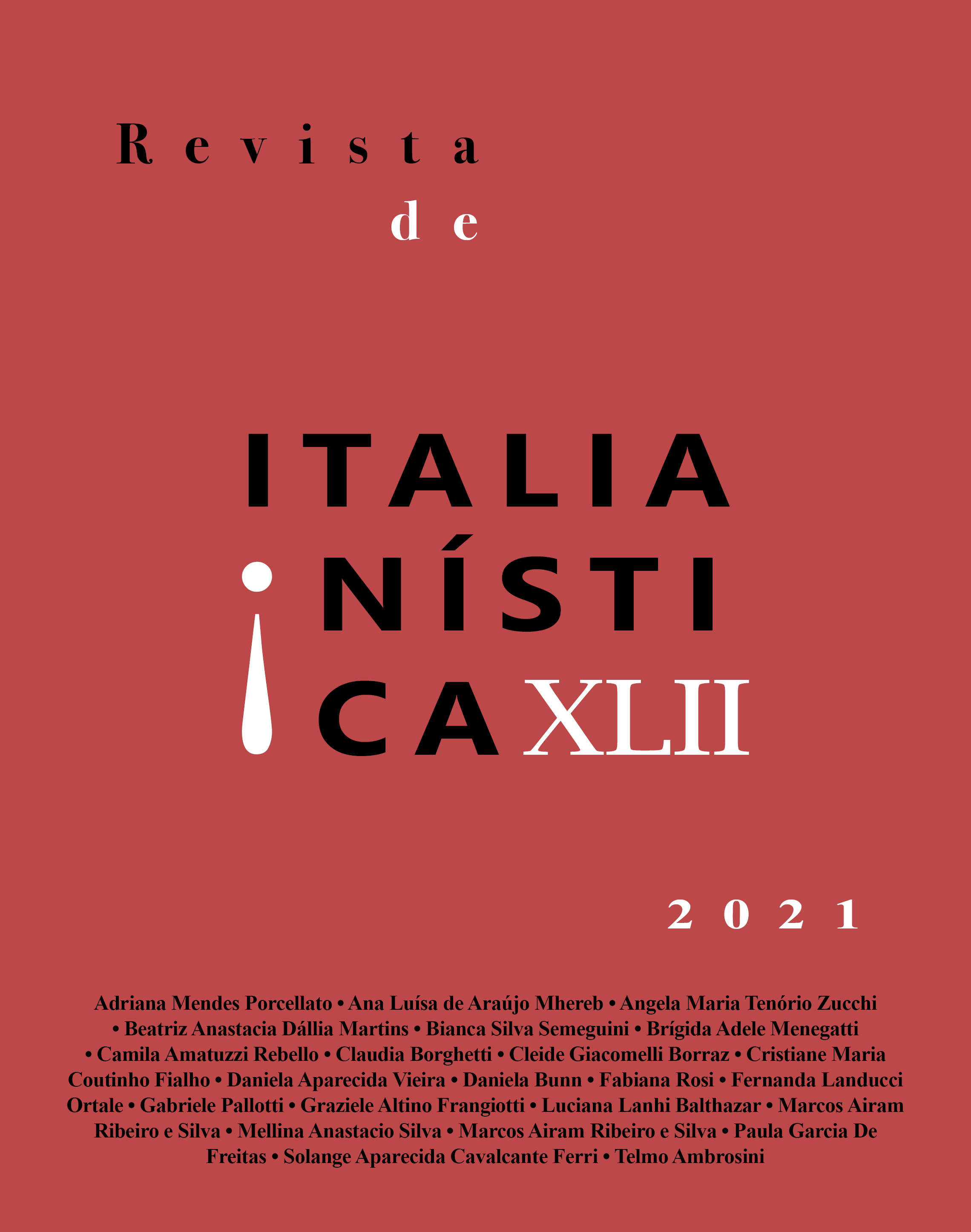Italian and Haitian Creole Workshops for Everyone: Additional Languages in an Integrated Center for Youth and Adult Education
DOI:
https://doi.org/10.11606/issn.2238-8281.i42p158-175Keywords:
Youth and adult education, Public school, Italian as an additional language, Haitian creole as an additional languageAbstract
This article aims to present the Integrated Center for Youth and Adult Education (CIEJA) Perus I – a municipal public school of São Paulo (SP) – and two
extracurricular activities developed in this school: the Italian and Haitian Creole workshops. In order to achieve this goal, firstly, we have presented this institution, whose teaching practices are strongly based on Paulo Freire’s postulates (1974), an author who defends the idea that education is a right that should be guaranteed to everyone. Secondly, we have approached the functioning of these extracurricular activities, focusing on the Italian and Haitian Creole workshops as additional languages. These workshops
are public and collective spaces for collaborative construction of knowledge and critical reflections on these languages and their respective cultures, which allows participants in these extracurricular activities to reflect on their own language and their own culture. Based on the postulates of this important Brazilian educator, it is possible to say that these workshops are considered, somehow, a measure of social justice, because they are public and free and have as main purpose the deelitization of the teaching-learning of additional languages.
Downloads
References
ALMEIDA, S. Racismo estrutural. São Paulo: Editora Pólen, 2019.
ARROYO, M. M. G. Passageiros da noite – do trabalho para a EJA: itinerários pelo direito a uma vida justa. Petrópolis: Vozes, 2017.
BAKHTIN, M. Discourse in the novel. In: HOLQUIST, M. (org.). The dialogic imagination. Austin: University of Texas Press, 1981, p. 259-422.
BAKHTIN, M.; VOLOCHINOV, V. N. Marxismo e filosofia da linguagem. São Paulo: Editora Hucitec, 1986.
BLOMMAERT, J.; BACKUS, A. Superdiverse repertoires and the individual. Current challenges for educational studies. In: SAINT-GEORGES, I.; WEBER, J. (orgs.). Multilingualism and multimodality. Boston: Sense, 2013, p. 11-32.
BRASIL. Ministério da Educação. Lei de Diretrizes e Bases da Educação Nacional, Lei no 9394/96. Disponível em: http://www.planalto.gov.br/ccivil_03/leis/l9394.htm. Acesso em: 04 abr. 2021.
BUSCH, B. The linguistic repertoire revisited. Applied Linguistics. Oxford University Press, 2012, p. 1-22. DOI: 10.1093/applin/ams056
BUSCH, B. Linguistic repertoire and Spracherleben, the lived experience of language. Working papers in urban language and literacies. Paper 148, 2015. Disponível em: http://heteroglossia.net/fileadmin/user_upload/publication/WP148_Busch_2015_Linguistic_repertoire_and_Spracherleben-libre.pdf. Acesso em: 04 nov. 2021.
FIALHO, C. M. C.; VIEIRA, D. A.; FERREIRA, G. S. S. Qual o papel da EJA na informação e na formação em épocas de pandemia? In: LIBERALI, F. C.; FUGA, V. P.; DIEGUES, U. C. C.; CARVALHO, M. P. (orgs.). Educação em tempos de pandemia: brincando com um mundo possível. Campinas: Pontes, 2020.
FREIRE, P. Pedagogia do oprimido. Rio de Janeiro: Paz e Terra, 1974.
GEERTZ, C. Nova luz sobre a antropologia. Rio de Janeiro: Jorge Zahar, [1978] 2001.
LEFFA, V. J.; IRALA, V. B. O ensino de outras línguas na contemporaneidade: questões conceituais e metodológicas. In: LEFFA, V. J.; IRALA, V. B. (orgs.). Uma espiadinha na sala de aula: ensinando línguas adicionais no Brasil. Pelotas: Educat, 2014.
LIBERALI, F. C.; LIBERALI, C. C.; PADRE, B. T.; SANTOS, J. A. A. Mobilidade e práticas translíngues na construção de um mundo com justiça social: um estudo no projeto Digit-M-ed. In: ROCHA, C. H.; EL KADRI, M. S.; WINDLE, J. A. Diálogos sobre tecnologia educacional: educação linguística, mobilidade e práticas translíngues. Campinas: Pontes, 2017.
MAUGERI, M. Tutti pazzi per l’italiano, è quarta lingua più studiata. 2016. Disponível em: https://www.agi.it/cultura/tutti_pazzi_per_litaliano_quarta_lingua_pi_studiata-1174983/news/2016-10-18/. Acesso em: 18 nov. 2020.
MENDES, E. A ideia de cultura e sua atualidade para o ensino-aprendizagem de LE/L2. Revista EntreLinguas, Araraquara, v. 1, n. 2, p. 203-222, 2015. Disponível em: https://periodicos.fclar.unesp.br/entrelinguas/article/view/8060. Acesso em: 15 jun. 2021.
SÃO PAULO, SECRETARIA MUNICIPAL DE EDUCAÇÃO. Currículo da Cidade – Educação de Jovens e Adultos – Língua Portuguesa. São Paulo: SME, 2019.
SCHLATTER, M.; GARCEZ, P. Línguas adicionais na escola: aprendizagens colaborativas em inglês. Porto Alegre: Edelbra, 2012.
VIEIRA, D. A. Italiano para todos: o italiano como língua adicional em um Centro Integrado de Educação de Jovens e Adultos brasileiros e imigrantes. Revista Italiano UERJ, v. 10, no 2, 2019, p. 116-135.
Downloads
Published
Issue
Section
License
Copyright (c) 2021 Revista de Italianística

This work is licensed under a Creative Commons Attribution-NonCommercial-NoDerivatives 4.0 International License.
A revista retém os direitos patrimoniais dos artigos e os publica simultâneamente sob uma Licença Creative Commons-Atribuição-Não Comercial-Sem Derivações.



